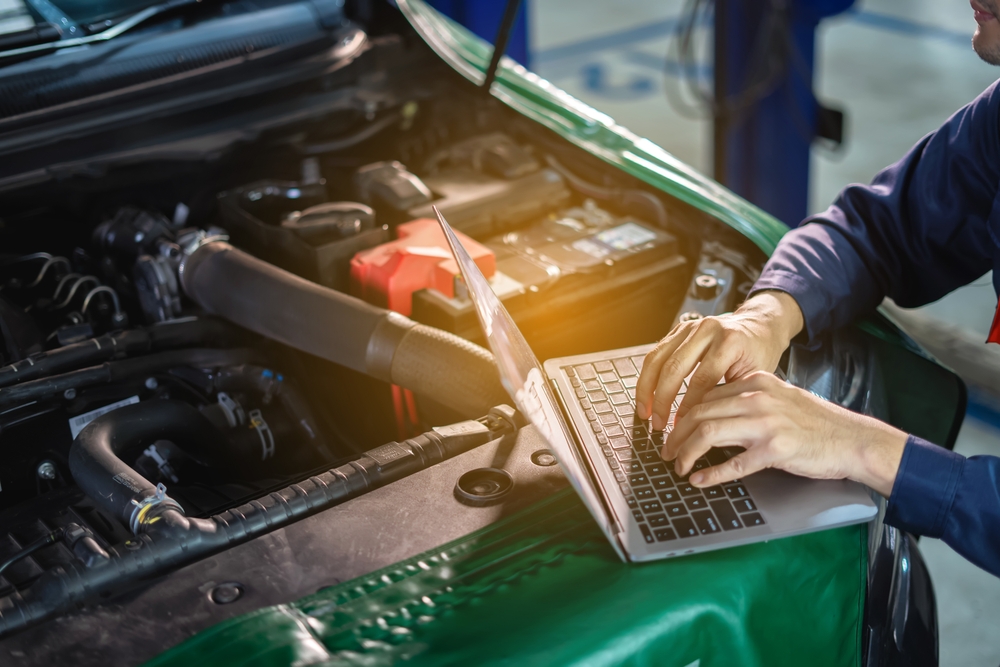
What to Expect During an Auto Diagnostic Test in Lubbock, TX
When your vehicle starts acting up, the first step toward getting it back in top shape is an auto diagnostic test. Whether your check engine light has come on or you’re experiencing other performance issues, an automotive diagnostic test can help pinpoint the problem quickly and accurately. For drivers in Lubbock, TX, having access to reliable auto electrical services can make all the difference in keeping their vehicles running smoothly. Understanding what happens during an auto diagnostic test, how mechanics interpret the results, and what to do next can give you peace of mind when dealing with car troubles.
The Purpose of an Auto Diagnostic Test
An automotive diagnostic test is designed to identify issues within a vehicle’s engine, transmission, exhaust system, brakes, and other crucial components. Modern vehicles come equipped with onboard computers that monitor performance and emissions. When something goes wrong, the system generates error codes, which can be retrieved by a mechanic using specialized diagnostic equipment. These codes provide valuable insights into potential malfunctions, allowing technicians to determine the underlying cause of a problem.
For many drivers in Lubbock, TX, the check engine light is often the first sign that something is wrong. While the light itself does not indicate the exact issue, it serves as a warning that a component in the vehicle needs attention. Rather than guessing at the problem, an auto diagnostic test provides a more accurate assessment, helping to prevent unnecessary repairs and expenses.
How an Auto Diagnostic Test Works
The process of conducting an auto diagnostic test begins with connecting a diagnostic scanner to the vehicle’s onboard computer system. This scanner reads the diagnostic trouble codes (DTCs) stored within the system. Each code corresponds to a specific issue, such as an oxygen sensor malfunction, a misfiring engine, or a problem with the fuel injection system.
Once the codes are retrieved, a skilled technician interprets the information and conducts further inspections if necessary. Sometimes, a single code may point to multiple possible causes, requiring additional testing to isolate the problem. Mechanics use a combination of visual inspections, electrical testing, and component-specific diagnostics to confirm the exact issue before recommending a repair.
In Lubbock, TX, automotive diagnostics are essential for ensuring that vehicles comply with emissions regulations and operate efficiently. Without these tests, small problems could go undetected until they turn into major, costly repairs. By identifying issues early, drivers can save money and avoid the inconvenience of unexpected breakdowns.
Common Issues Identified During a Diagnostic Test
One of the most frequent reasons for an auto diagnostic test is a check engine light activation. However, this is just one of many issues that diagnostic tests can uncover. Some of the most common problems detected include faulty oxygen sensors, mass airflow sensor failures, catalytic converter issues, and ignition coil malfunctions. Each of these issues, if left unaddressed, can negatively impact fuel efficiency, emissions, and overall vehicle performance.
In addition to engine-related problems, an auto diagnostic test can identify transmission issues, electrical system failures, and problems with the braking system. Auto electrical services play a crucial role in diagnosing issues related to a vehicle’s battery, alternator, and starter motor. For instance, a weak or failing battery might cause intermittent starting problems, while an alternator malfunction can lead to electrical failures and battery drainage.
For those living in Lubbock, TX, where temperatures can fluctuate significantly, it’s especially important to ensure that a vehicle’s electrical and cooling systems are functioning properly. Extreme heat can put additional stress on a car’s engine and battery, making regular diagnostic tests a smart preventative measure.
What to Do After Receiving Your Diagnostic Results
Once a diagnostic test is completed, the mechanic will provide a detailed report of the findings. This report includes the trouble codes retrieved, the potential causes of the issue, and recommended repairs. In some cases, the problem may be minor and require only a simple fix, such as replacing a sensor or tightening a loose connection. In other cases, more extensive repairs may be needed, such as repairing the transmission or replacing a major engine component.
It’s important to discuss your options with a trusted mechanic before proceeding with repairs. Ask about the severity of the issue, the estimated cost of repairs, and whether the problem needs immediate attention. Some minor issues may not affect the vehicle’s performance right away, allowing you to plan for repairs at a later time. However, ignoring serious problems can lead to more extensive damage and higher repair costs down the road.
In Lubbock, TX, many auto repair shops offer free or low-cost diagnostic tests to help customers make informed decisions about their vehicle maintenance. Taking advantage of these services can help you stay ahead of potential problems and keep your car running smoothly for years to come.
Choosing the Right Auto Repair Shop for Diagnostic Services
Finding a reliable auto repair shop in Lubbock, TX, is essential for getting accurate and honest diagnostic results. Not all repair shops have the same level of expertise or access to advanced diagnostic equipment, so it’s important to choose a reputable service provider. Look for mechanics who are ASE-certified and have experience working with your specific vehicle make and model.
Reading online reviews and asking for recommendations from friends and family can also help you find a trustworthy auto repair shop. A good mechanic will explain the diagnostic results in clear, easy-to-understand terms and provide transparent pricing for any necessary repairs. Avoid shops that pressure you into unnecessary services or fail to provide a detailed explanation of the findings.
Conclusion
Ultimately, investing in regular automotive diagnostics in Lubbock, TX, can save you time, money, and frustration in the long run. Whether your check engine light is on or you’re experiencing other vehicle issues, a thorough diagnostic test can provide the answers you need. By staying proactive about vehicle maintenance and choosing a qualified mechanic, you can keep your car in top condition and enjoy peace of mind on the road.
Need a Mechanic in Lubbock, TX?
Since 1975, M & M Tire and Service Center has been the premier provider of general automotive repairs in the Lubbock area. We are a family-owned and operated business with over 40 years of experience. Our friendly and professional staff work to provide quality repairs and services at reasonable prices. At M & M Tire and Service Center, we offer oil changes, brake servicing, suspension repair, tires, electrical system analysis, heating and air conditioning, engine repairs, doors and windows and safety inspections. Call us today to schedule your next appointment and see why the Better Business Bureau has given us an A+ rating since 1983.
More...
Categorised in: Automotive Testing
This post was written by admin





